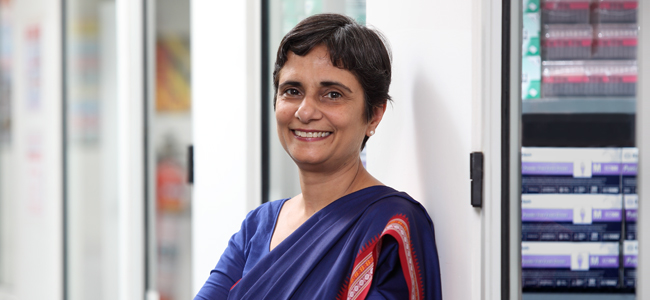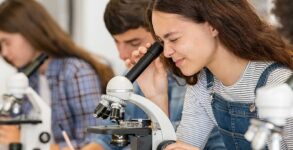On April 16, along with 10 new Foreign Members and one Honorary Fellow for their exceptional contributions to science, 51 eminent scientists were elected as Fellows of the Royal Society. Dr Gagandeep Kang, Executive Director of the Translational Health Science and Technology Institute (THSTI) has been named as a Fellow of the Royal Society of London.
While Dr Gagandeep Kang who is the current chair of the WHO Southeast-Asia region’s Immunisation Technical Advisory Group, became the first Indian woman scientist as a FRS, 82-year-old Mumbai-born Padma Bhushan awardee and chairman of pharmaceutical major Cipla, Dr Yusuf Hamied was elected as Honorary Fellow of the Royal Society, the oldest scientific academy in the world which has been in existence for 356 years.
The Royal Society is an independent scientific academy of the UK and the Commonwealth, dedicated to promoting excellence in science.
The Fellowship of the Royal Society is an incredible honour in the scientific world, and Gagandeep Kang, along with the other new Indian Royal Fellows have now joined the ranks the brilliant scientific minds who created history with their scientific works- Isaac Newton (1672), Charles Darwin (1839), Michael Faraday (1824), Ernest Rutherford (1903), Albert Einstein (1921), Dorothy Hodgkin (1947), Alan Turing (1951) and Francis Crick (1959), which is an incredible honour in the scientific world.
Since then, there have been a few male scientists from India to follow the line, notably Srinivasa Ramanujan (1918) and Subrahmanyan Chandrasekhar (1944), but sadly, no female scientist.
“It is our Fellowship that has remained a constant thread and the substance from which our purpose has been realised: to use science for the benefit of humanity. “ Venki Ramakrishnan PRS
Meet our new Fellows https://t.co/i1Wg5BoyoZ#RSFellows pic.twitter.com/1PLBivQ5vS— The Royal Society (@royalsociety) April 17, 2019
In a statement of the academy, President of the Royal Society, Venki Ramakrishnan said, “This year’s newly elected Fellows and Foreign Members of the Royal Society embody this, being drawn from diverse fields of enquiry- epidemiology, geometry, climatology- at once disparate, but also aligned in their pursuit and contributions of knowledge about the world in which we live, and it is with great honour that I welcome them as Fellows of the Royal Society,” as quoted by TOI.
Over the past 25 years, Kang’s work has straddled many disciplines as she has conducted research into the transmission, development and prevention of enteric infections among children. Principal Scientific Advisor to the Government, K Vijayraghavan commented, “She and her collaborators built national rotavirus and typhoid surveillance networks. They established laboratories to support vaccine trials and conducted clinical trials of two WHO pre-qualified vaccines, made by two Indian companies. As the first woman Fellow of the Royal Society working in India, she is a trail-blazer,” as quoted by a leading news agency.
Meanwhile a statement on her biography from the Royal Society said, “She (Kang) is investigating the complex relationships infection, gut function and physical and cognitive development, and seeking to build a stronger human research in India,” while announcing the names of 51 distinguished scientists selected as fellows of arguably the world’s pre-eminent scientific academy.
Among the other Indian-origin scientists elected as fellows this year include
- Prof Gurdyal Besra, Bardrick Professor of Microbial Physiology and Chemistry, Institute of Microbiology and Infection, School of Biosciences, University of Birmingham.
- Prof Manjul Bhargava, R Brandon Fradd Professor of Mathematics, Department of Mathematics, Princeton University.
- Executive Director, Translational Health Science and Technology Institute, India.
- Prof Anant Parekh, Professor of Physiology, Department of Physiology, Anatomy and Genetics, University of Oxford.
- Prof Akashay Venkatesh, Professor, School of Mathematics, Institute for Advanced Study.


















